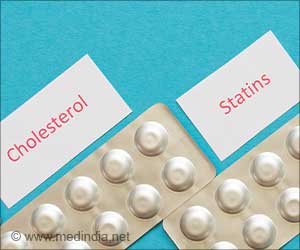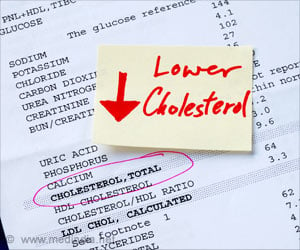Researchers have found that abdominal fat is not the primary factor for causing metabolic syndrome but insulin resistance also plays a part in leading to a cluster of conditions that includes the most dangerous heart attack risk factors including pre-diabetes, diabetes, high blood pressure, and changes in cholesterol.
Abdominal fat or the spare tire that many of us carry has long been linked to metabolic syndrome, a combination of medical disorders that increase one's risk for cardiovascular disease and diabetes.However, the study conducted by a team of researchers led by Gerald I. Shulman and Kitt Falk Petersen at Howard Hughes Medical Institute (HHMI), Yale University School of Medicin, found otherwise.
Insulin resistance is a condition in which the body's cells become resistant to insulin, a hormone secreted by the pancreas that plays an essential role in regulating the carbohydrates, lipids, and proteins obtained from food.
As part of the study, researchers used powerful new magnetic resonance imaging techniques to observe how nutrients are channelled in the body in both insulin resistant and insulin sensitive human subjects which included young, lean, non-smoking, healthy people who were sedentary and matched for physical activity.
The volunteers had no confounding factors typically associated with obesity and type 2 diabetes, which have been thought to play a key role in the pathogenesis of the metabolic syndrome, apart from insulin resistance in one cohort.
Researchers provided the volunteers with two meals high in carbohydrates, and turned to magnetic resonance spectroscopy to measure the production of liver and muscle triglyceride, the storage form of fat, glycogen, and carbohydrate.
Advertisement
"What we found is that (insulin) sensitive individuals took the energy from carbohydrate in the meals and stored it away as glycogen in both liver and muscle," Shulman said.
Advertisement
The study demonstrated that insulin resistance in skeletal muscle, caused by decreased ability of muscle to make glycogen, the stored form of carbohydrate from food energy, can promote an elevated pattern of lipids or fats in the bloodstream that underpins the metabolic syndrome.
Researchers also found that skeletal muscle insulin resistance preceded the development of insulin resistance in liver cells, and that fat production in the liver was increased.
The findings of the study were published in the July issue of the Proceedings of the National Academy of Sciences (PNAS).
Source-ANI
LIN/M











